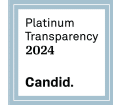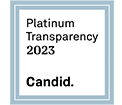This summer, Canada introduced a significant amendment to its Competition Act through Bill C-59, aimed at cracking down on deceptive environmental claims, or “greenwashing.” The new provisions require environmental claims to be “adequate and proper,” with substantiation grounded in internationally recognized methodologies. In short, you need to have the rigorous documentation to back up claims. For companies in the oil and gas sector, where scrutiny is particularly intense, this means independently verified, third-party certification will potentially be the gold standard for compliance.
Canada’s Bill C-59 is part of a broader global push against greenwashing. The European Union’s Green Claims Directive, approved earlier this year, targets misleading claims and vague language, including the use of “sustainability” and “carbon neutrality”, which lack independent, third-party verification. Similarly, the U.S. Federal Trade Commission’s upcoming updates to its Green Guides are expected to curb vague or forward-looking environmental claims without measurable targets, implementation plans, or third-party validation. Meanwhile, Japan and South Korea are taking a demand-side approach through their recently launched Coalition for LNG Emission Abatement towards Net-zero (or CLEAN) initiative, which aims to enhance transparency and verification of emissions data as part of their commitment to reducing methane emissions across global supply chains. This emerging global alignment underscores the growing necessity for transparent, credible, and independent third party verification to substantiate environmental claims, build trust, and demonstrate progress.
While the set of international standards that will be accepted by regulators as meeting the threshold has yet to be explicitly detailed, Equitable Origin (EO) is well positioned to help energy companies navigate this landscape. EO100™ certification helps operators prepare to manage the uncertainties of changing disclosure regulations by aligning themselves with a widely recognized certification body that synthesizes relevant global environmental, social and governance (ESG) standards to provide the rigor, credibility and level of transparency required to satisfy stakeholders, including investors and regulators.
Already, 15% of the gas produced in the U.S. and Canada is EO100™ certified, with several companies actively seeking certification for additional assets across North America and beyond. This momentum reflects the growing demand for verified, responsible energy products from investors and large purchasers including Energir - a leading energy company serving over 535,000 customers in Quebec and the northeastern United States. The company set a target to source 100% of its natural gas from EO100™ certified suppliers by 2030.
EO reinvests revenue from its certification program into world-class Indigenous community initiatives in the Amazon region, setting it apart as a values-driven partner. For companies looking to align with anti-greenwashing legislation while fostering positive social and environmental impact, EO offers a compelling and strategic solution.
The stakes for credibility have never been higher, but companies that move early and adopt third-party verification can turn compliance risks into competitive advantages.


